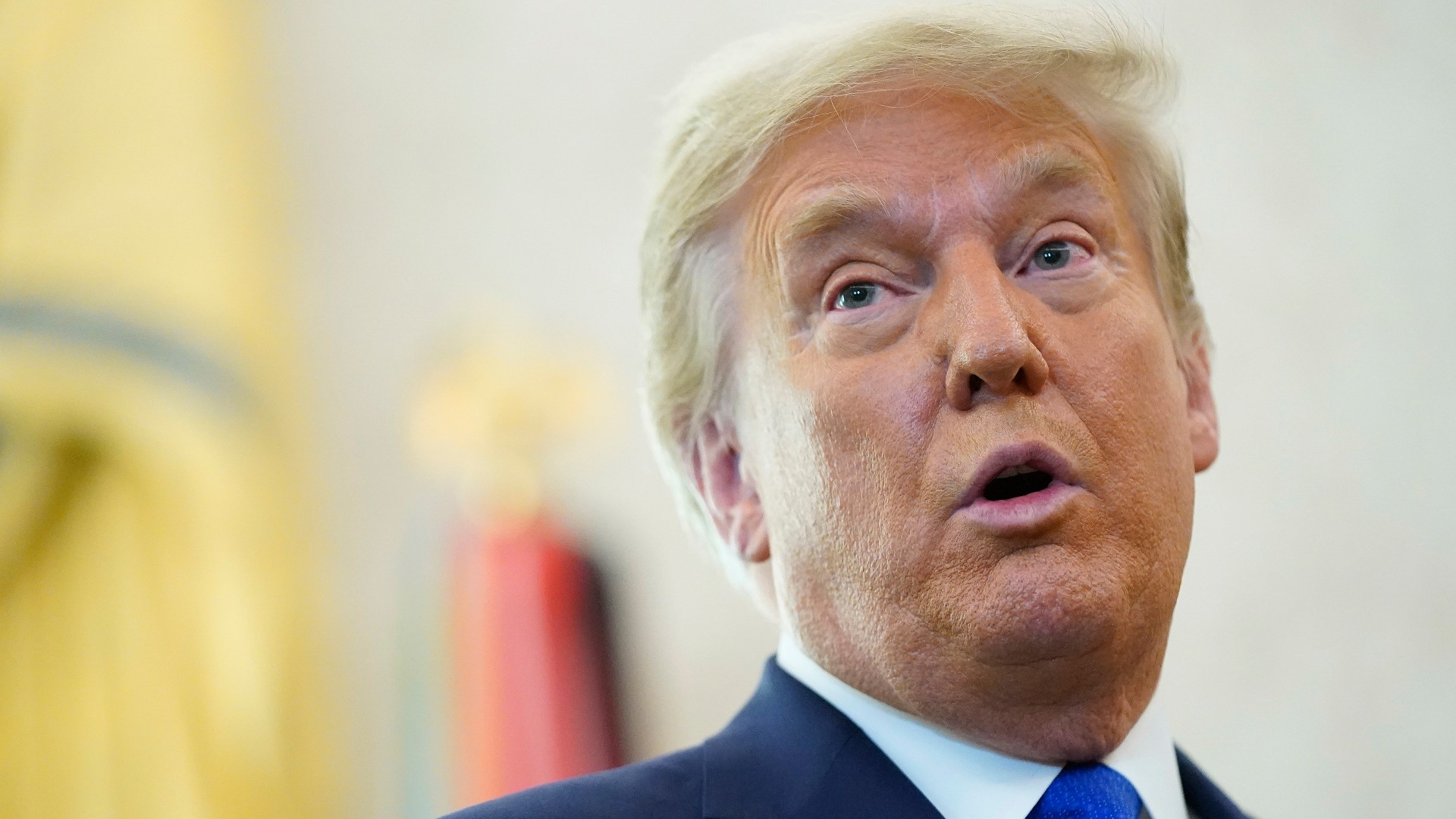WASHINGTON — QUESTION:
If President Donald Trump is removed by the 25th Amendment or an impeachment hearing, would he be able to run again in 2024?
ANSWER:
If removed by 25th Amendment: Yes, He can run again. When removed through the 25th Amendment, a president is not disqualified from running yet again.
If removed by an impeachment conviction: It depends. When impeaching someone, Congress does have the constitutional authority to disqualify that person from future office. However, there have been occasions when Congress has decided not to disqualify someone from future office.
If the president were to be impeached and convicted, his ability to run in 2024 would depend on whether Congress decided to disqualify him or not.
SOURCES:
- Article I, Section III, U.S. Constitution
- 25th Amendment, U.S. Constitution
- U.S. Senate Webpage, "Impeachment"
- Gary Nordlinger, Politics Professor at The George Washington University
- Robert Peck, Center For Constitutional Litigation
Process:
In response to the dramatic visuals spreading on social media of a mob breaking into the U.S. Capitol, many have started to direct the blame towards President Trump.
Multiple Democratic lawmakers, including House Speaker Nancy Pelosi and Senate Majority Leader Chuck Schumer, are now calling for his immediate removal through either an impeachment hearing or the 25th Amendment.
The Verify team is looking into whether such an action would disqualify President Trump from running yet again in 2024.
What does the 25th Amendment say?
Section Four of the Amendment allows for the vice president, along with "the principal officers of the executive departments," to inform Congress that it is their belief that "the President is unable to discharge the powers and duties of his office." In this situation, the VP would take over as president.
In response, a president could challenge this assertion by informing Congress that "no inability exists." In this situation, Congress would decide the issue, by holding a vote, in which two-thirds of both houses are needed for the Vice President to take over.
Robert Peck, a legal expert from the Center For Constitutional Litigation, said that a president removed through the 25th Amendment would still be able to run for future offices.
"There's no bar on running again," he said. "If you are removed, which is considered a temporary removal from office.
Gary Nordlinger, a politics professor from The George Washington University agreed.
"It doesn’t affect your future qualifications," he said. "It just means you’re not fit right now."
What if the president is impeached and convicted?
Article I, Section III goes into detail about the impeachment process, writing the following about possible punishments:
“Judgement in Cases of Impeachment shall not extend further than to removal from Office, and disqualification to hold and enjoy any Office of honor, Trust or Profit under the United States: but the Party convicted shall nevertheless be liable and subject to Indictment, Trial, Judgment and Punishment, according to Law.”
Our legal expert told the Verify team that this means that Congress has the constitutional authority to include in the impeachment a disqualification from serving in future offices. However, Congress is not required to include this disqualification.
“It’s not automatic that they can’t run agai” said Peck. "If that’s added to the terms of the impeachment and conviction, then he is ineligible.”
Our experts referenced Rep. Alcee Hastings, a member of Congress from Florida as a prime example. He was a Circuit Court judge in Florida, before he was impeached and convicted in 1989. Congress chose not to disqualify him from future offices, which allowed him to run for Congress in 1992.


